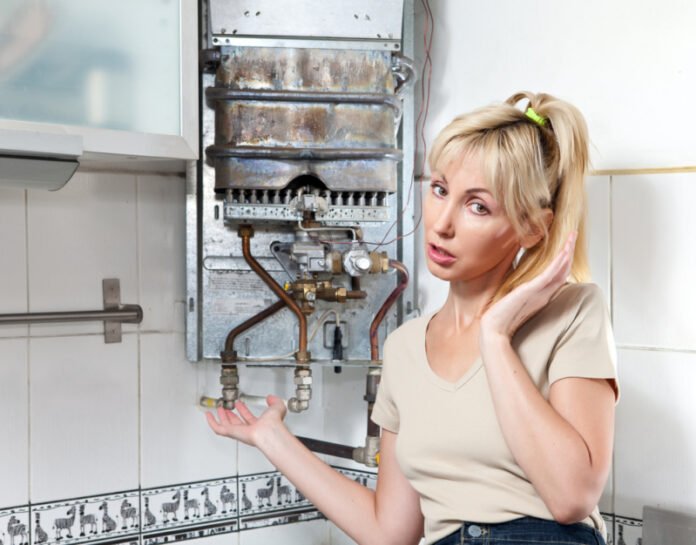A water heater is one of the most vital appliances in many households that rely on warm, running water. If you have one in your house, you’ll need water of varying warmth for different applications, such as baths, showers, cooking, handwashing, and laundry.
However, the water heater can cause inconveniences if it breaks unexpectedly. You will have to purchase a new water heater or call professionals like Plumb-Tech Plumbing & Heating to repair the broken one. So, how do you know your water heater is broken?
Signs Your Water Heater is Broken
In this guide, we’ll show you some of the signs your water heater is broken. It will help you know the right time to repair or replace the broken water heater.
Here are the signs to look at in your water heater.
1. Water Heater Producing Cold Water
Warm or hot water is essential in almost every household. Without the hot water, you’ll find it hard to clean the dishes, wash your hands, and run the laundry machines.
Here are the possible reasons your water heater is producing cold water.
Misadjusted Thermostat Settings
Your water heater could be producing cold water because it’s set wrongly. If you worked around the thermostat recently, you might have interfered with the settings.
To fix the issue, adjust the thermostat settings to around 120 – 140 degrees Fahrenheit. Leave the water heater to run for about 30 – 60 minutes and check if the water is hot.
Broken Heating Element
If the water flowing from your faucets gets cold suddenly, it could be that the water heater’s heating element is broken.
For an electric water tank, the heating element is usually a coil and is inside the tank. It will not heat water efficiently when the electric connections go bad.
Small Water Heater Tank
If your water heater produces cold water frequently, it could be that the demand for hot water in your home is higher than what the water heater can heat.
To solve this issue, you need to get a bigger tank that can meet your big family’s demand. Get a pro to help you determine the right size of water heater you need.
2. Water Heater is Leaking
Water should only be found inside the tank. If you see some on the floor around your water heater tank, it could be that the water heater is leaking.
When not fixed immediately, leaking water heaters can cause significant damages to your property. It will wet your walls, carpet, furniture, and encourage mould growth.
What might be the reasons your water heater is leaking? It could be due to expansion issues. As the tank expands every time it gets heated, it will begin to develop fractures.
Water can also leak around the tank when the heating system has loose connections. You can tighten the loose connections or hire a professional plumber to fix it.
Spotting leaks is always quite difficult. So, you need to inspect the components of your water heater frequently. If the tank itself leaks, you’ll have to replace it.
3. Water Heater Producing a Lot of Noise
A good water heater should make very little or no noise at all. Any loud or strange noise from the tank indicates that there’s an issue that you need to fix promptly.
Rumbling, rattling, or knock sounds could mean that sediments have accumulated at your tank’s bottom. As a result, the water will not run as it ought to do.
When the sediment at the bottom of the tank gets heated and reheated, it hardens, causing more wear to the metal tank. More brittle metal and cracks will form on the tank.
To fix this issue, consider contacting a professional plumber to flush your water heater tank. If you still hear the strange sounds, the water heater’s lifespan could be ending.
4. Water Heater Forming Rust on the Inside and Outside
Although steel is one of the sturdiest materials in the world, it can still form rust. When any part of the water heater starts to corrode, the rust will spread and ‘eat’ the steel.
If you see rust on the tank or pipes, you need to fix it before it starts to leak. However, it can be tricky to tell whether the rust is coming from the pipes or water heater tank.
Here is how to fix the major causes of rusty tanks.
- Rusty Water: If you notice rust in the water flowing from your faucets, the chances are high, your water heater is rusty. That usually occurs when the water heater is ageing. Start planning on getting a new water heater.
- Rusty Pipes: When your piping system is rusty, you will have to replace all the damaged pipes with new ones before the situation worsens. Otherwise, it can get so intense that you’ll begin to see rust in tubs and sinks.
- Rusty Inlet/Valve: If there’s rust around the pressure relief valve or water inlet, it could mean that there’s rust in the tank. You can fix the issue by replacing the tank. There’s no other way to salvage a water heater that is rusting.
Final Words
Now that you know the signs of a broken water heater, you can quickly diagnose if your water heater is in good shape or not. If you suspect that it’s broken, you can contact a professional to verify the water heater’s condition. Ensure that you fix all the water heater problems as soon as possible before the issues exacerbate.




















